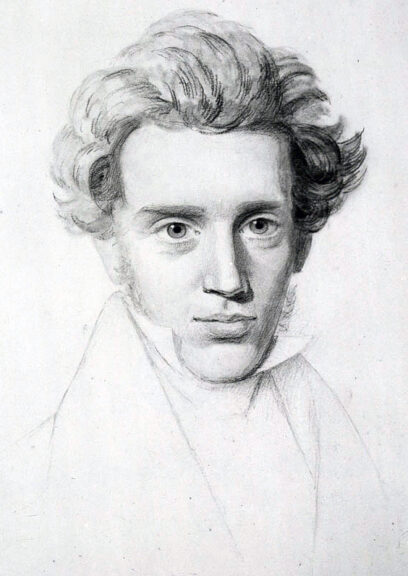How to sell in B2B — even if you hate selling.
Some people like to sell, but I’m not one of those people. I hate to sell.
Or, to paraphrase Dorothy Parker’s famous saying, “I hate to write, but I love having written.” That would be, “I hate to sell, but I love having sold.” 1As often is the case with famous quotes, many cannot be attributed to the ones who allegedly said or wrote them. According to this article by Jason Kottke, Dorothy Parker probably never said or … Continue reading
In this blog article, I’ll explain why I sell by teaching and helping.
Here we go:
Always Be Closing
I respect the art of selling immensely. To me, salespeople are heroes who keep our economy’s wheels turning. Public relations is just a lubricant.
But selling isn’t just done by salespeople, much like PR professionals don’t just do PR. We must all communicate — and we must all sell, whether it’s our products, services, or ourselves. Fresh out of university, I quickly realised that my lack of sales chops would be a serious problem.
During this period, I listened to many self-help tapes on becoming a better salesman and watched Glengarry Glen Ross repeatedly.
ABC, you know.
Always. Be Closing.
Selling is a Rough Business
My first years in the industry were spent selling article ideas to journalists over the phone, over and over.
I remember locking myself in the bathroom to breathe for a few minutes before going at it again. Life as a twenty-something PR junior looking to make a name for himself was rough.
I often fantasised about pursuing another career when sitting in the subway home after work. I was sleep-deprived with nose bleeds and bolting headaches.
Instead, I dreamt of becoming a teacher. “What could be more meaningful than teaching,” I thought.
I acquired passionate opinions about teaching at an early age.
Perhaps ironically, I wasn’t popular amongst my teachers in school. I jumped at any chance to provoke and challenge. I had ideas about presenting knowledge, and I always felt I would do a better job than my teachers.
During my university years, my girlfriend studied to be a teacher in history, politics, and religion. True to form, I read her course literature, ranging from Michel Foucault to Jean Piaget.
Teaching, it seemed, was part of my Ikigai.
Teaching as a Way To Sell
The Ikigai Test
Have you been pondering your raison d’être? The term ikigai comes from two Japanese words:
While the Western adaptation often treats ikigai like a productivity hack or a purpose-finding workshop, it’s less rigid in its original Japanese context. It doesn’t require you to monetise your passion or save the world — it can simply mean appreciating small joys, like sipping tea on a quiet morning or tending to a bonsai tree.
It’s more about process than outcome.
Ikigai is often described as the intersection of what you love, what you’re good at, what the world needs, and what you can be paid for — a harmonious convergence that supposedly leads to a fulfilling life.

Here’s the first step of the ikigai test for the intersecting middle layer, where I would say that:
Then, here’s the second step of my ikigai test for the outer layer (based on my middle layer answers):
1. That which I love (Passion & Mission): Communication & Teaching
2. That which the world needs (Mission + Vocation): Teaching + Learning and Sharing
3. That which I can get paid for (Profession + Vocation): Public Relations + Learning and Sharing
4. That which I’m good at (Passion + Profession): Communication + Public Relations
All good. My answers seem to work well with the outer layer of the Ikigai diagram.
So, for the third step, and based on my answers, what can I place in the centre (the Ikigai) that works?
Whohoo! That works!
Can you make it work, too?
Nota bene:
I understand that turning ikigai into “find your dream job!” is like using meditation to increase productivity — missing the point entirely.
Life doesn’t have to be perpetually meaningful or joyous. Striving for constant alignment of these circles can sometimes add unnecessary pressure.
Learn more: The Ikigai Test
Helping as a Way to Sell
Existentialism: Thought Leadership, Advisory, and Education
Regarding thought leadership, advisory, and education, I often remind myself of the beautiful words of the Danish existentialist Søren Kierkegaard (1813 – 1855): 2Søren Kierkegaard. (2023, November 27). In Wikipedia. https://en.wikipedia.org/wiki/S%C3%B8ren_Kierkegaard

According to Kierkegaard, servitude is the foundation for success for all aspiring thought leaders, advisers, salespeople, and educators:
“If one is truly to succeed in leading a person to a specific place, one must first and foremost take care to find him where he is and begin there.
This is the secret in the entire art of helping.
Anyone who cannot do this is himself under a delusion if he thinks he is able to help someone else. In order truly to help someone else, I must understand more than he — but certainly first and foremost understand what he understands.
If I do not do that, my greater understanding does not help him. If I nevertheless want to assert my greater understanding, then it is because I am vain or proud, then basically instead of benefiting him I really want to be admired by him.
But all true helping begins with a humbling.
The helper must first humble himself under the person he wants to help and thereby understand that to help is not to dominate but to serve, that to help is a not to be the most dominating but the most patient, that to help is a willingness for the time being to put up with being in the wrong and not understanding what the other understands.”
— Søren Kierkegaard (1813 – 1855)
Learn more: Existentialism for PR Advisers
How To Sell in B2B
Late one night on the subway, through yet another bolting headache, I remembered the Søren Kierkegaard quote.
If I want to teach as a humble servant, maybe I could try to approach selling in the same way.
Sure, whoever I’m selling to must agree on compensation first. However, that’s only a minor consideration along the much more critical road to truly helping someone achieve their goals and fulfil their potential.
And so my Ikigai ended up changing my whole approach to sales. To me, selling is never about the deal. It’s about helping.
“The best way to sell something — don’t sell anything. Earn the awareness, respect, and trust of those who might buy.”
— Daniel H. Pink
Now, I think this mindset works because I genuinely think that I have something more valuable to offer than just the mere exchange of money and time. I offer something that will help.
Put another way: If you’re honest and confident about helping people and organisations, selling doesn’t have to feel like selling.

THANKS FOR READING.
Need PR help? Hire me here.

PR Resource: Public Relations Strategies for B2B
Spin Academy | Online PR Courses
Public Relations Strategies for B2B
Here are my preferred public relations strategies for B2B organisations:
Learn more: Public Relations Strategies for B2B
💡 Subscribe and get a free ebook on how to get better PR.

Annotations
| 1 | As often is the case with famous quotes, many cannot be attributed to the ones who allegedly said or wrote them. According to this article by Jason Kottke, Dorothy Parker probably never said or wrote, “I hate to write, but I love to have written.” |
|---|---|
| 2 | Søren Kierkegaard. (2023, November 27). In Wikipedia. https://en.wikipedia.org/wiki/S%C3%B8ren_Kierkegaard |


